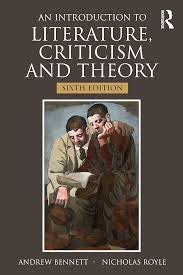Trigger Warnings and Spoiler Alerts
An Introduction to Literature, Criticism and Theory (Sixth edition, 2023) by Andrew Benne
How to Read This Book
[....] primary focus….is on what is powerful, complex and strange about literary works themselves. We describe and seek to illuminate critical and theoretical arguments or ideas insofar as these arise from our readings of particular poems, stories or plays.
Trigger Warning and Spoiler Alert
Trigger Warning
[....] The assumption here seems to be that if students are given advance notice, it will be easier for them to deal with the subject matter in question. But there is evidence that trigger and content warnings can themselves be triggering – that they can do more harm than good, even or especially to the vulnerable. For this and other reasons, we are inclined to avoid trigger warnings and content warnings. Be warned: you will find none in these pages. Rather, we proceed on the basis that literature is fundamentally a dangerous and disquieting thing. If it were not, it would not be worth studying.
Spoiler Alert
[....] ‘spoiler alert’ seems to us vapid, misleading and repressive. People use this phrase to give notice of the fact that they are about to disclose some important detail regarding the plot of a story, or a revelation of the true nature or true motivation of a character in the text. ‘Spoiler alert’ implies that reading a literary work is crucially to do with some significant reveal – as if one might only enjoy reading Hamlet, for example, in order to find out whether the eponymous prince manages to kill his uncle Claudius or not.
[....] this phrase seems to serve a more insidious purpose, by directing attention away from the scene of creative reading and critical thinking. Consider this as the Bennett and Royle spoiler alert about ‘spoiler alerts’: you won’t find any in the pages of this book. Literature is not about knowing what’s coming, it’s about what happens (in language, in tone and form, in terms of themes and ideas) as you read. It’s about hope and pleasure, about joy and desire and intrigue, and then also, of course, about loss and uncertainty, the unpredictable and the unforeseen.
* * *
Jay
24 February 2024



